Productions
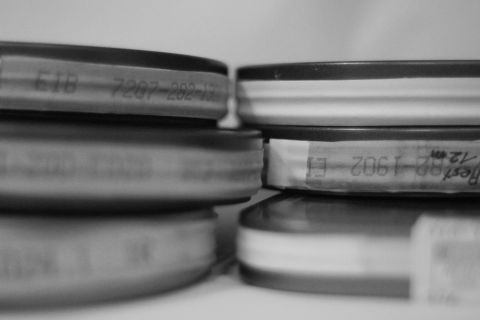
Referenzen

1905: Heinrich Vogeler is celebrated as the star of German Jugendstil. But self-doubt increasingly torments him. In search of new inspirations he moves to the First World War and returns as a changed man.

Anne chats with the advisor of an online shop for skin care. But this shop doesn't sell skin care products, it provides help for victims of domestic violence.

High noon at the Strunz pit! Two workers fight over a lump of strontianite, the white gold of the sugar industry. The mine owner forces them back to work with his gun drawn - class warfare as a Western stand-off. When the village schoolmaster's wife arrives at the mine with two maids, it becomes clear that they have their own scores to settle with the three men. A short western about the North German gold rush - historically accurate in Low German.

Astrid promises her beloved grandfather to take care of her grandmother after his passing. But can the life of a young filmmaker be reconciled with caring for an 86-year-old suffering from dementia? A joint canoe trip across northern Germany is supposed to provide the answer. It is a journey into the past, back to the place of childhood days where the canoe was christened. And it is a journey into an uncertain future because it quickly becomes clear how thin the line is between the grandmother's greatest possible self-determination and the granddaughter's self-sacrifice.

Juditha and Erik in their 60s are facing the wife's illness, the shame and disappointment related to it, as well as expectations and ever-changing hopes. A couple will need to rediscover the foundation of their marriage to find each other again.

ZOË (12) is best buddies with her father. When Dad, suddenly and inexplicably, decides to become an actor, the rest of the family thinks he’s having a burnout. Zoë is the only one who believes her dad is an amazing actor waiting to be discovered…

Anna remembers stories from her childhood that were told so often that they became self-descriptions. Anna as a fat child in ballet class, Anna with a family friend in Venice, Anna as a teenager at the disco. These memories are part of an identity that is defined by the fat body, by the implanted idea of being wrong.

In a dystopian 2054, three friends go on a road trip into the past. On their journey, they rediscover lost biodiversity. How could it all disappear? When the friends find the key to a decisive moment in time everything will change.

30 years ago, former explorer Robert Peroni gave up everything to move to eastern Greenland, whose population seems doomed to extinction. He founded The Red House, a shelter that offers work to local people left with nothing yet want to stay, despite the uncertain future.
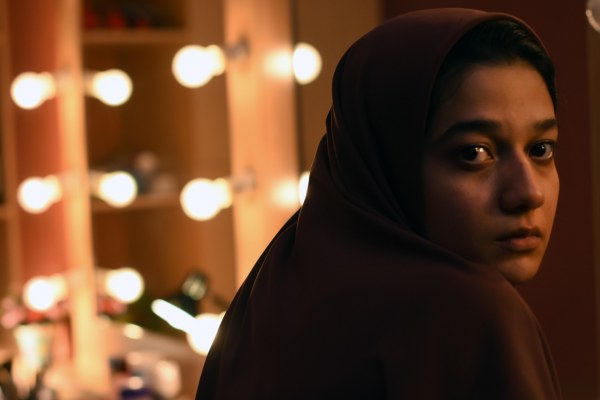
Maryam is accused of the murder of Nasser, her temporary husband. Nasser would not accept Maryam’s pregnancy and died in the ensuing dispute under unclear circumstances. On a popular reality show, Maryam is given the opportunity to fight for the forgiveness of Nasser’s daughter Mona and escape the death penalty. While the machinery of the TV show runs relentlessly and Mona is able to win the sympathy of the audience, Maryam, scarred by her stay in prison and the death of her baby, withdraws more and more into herself.

He was an icon, flamboyant pianist, egomaniac, showman par excellence: Liberace - the King of Bling, led his life in the fast lanes between Hollywood, Las Vegas and Palm Springs. In the middle of the Californian desert, where Hollywood stars celebrated wild parties around private pools, he lived a paradoxical life of spectacle and secrecy, illusion and reality. His success is closely linked to the growing popularity of television and the American TV era. Scores of American housewives adored the musician who could play everything from jazz to classic. His public life was as paradoxical as his performances were glamorous. No other artist cultivated such an openly camp persona on America's biggest stages while at the same time vehemently refusing to come out as gay, a facade Liberace kept up until his death. He was one of the first celebrities to die of complications from the AIDS virus, although his death was officially attributed to "heart failure" in order to preserve the memory of the one-man Disneyland. We examine his stellar career and its abrupt end in the context of America's social and media history. Liberace's story reflects the American dream - but also the country's bigotry and the divisions of a rapidly growing society.
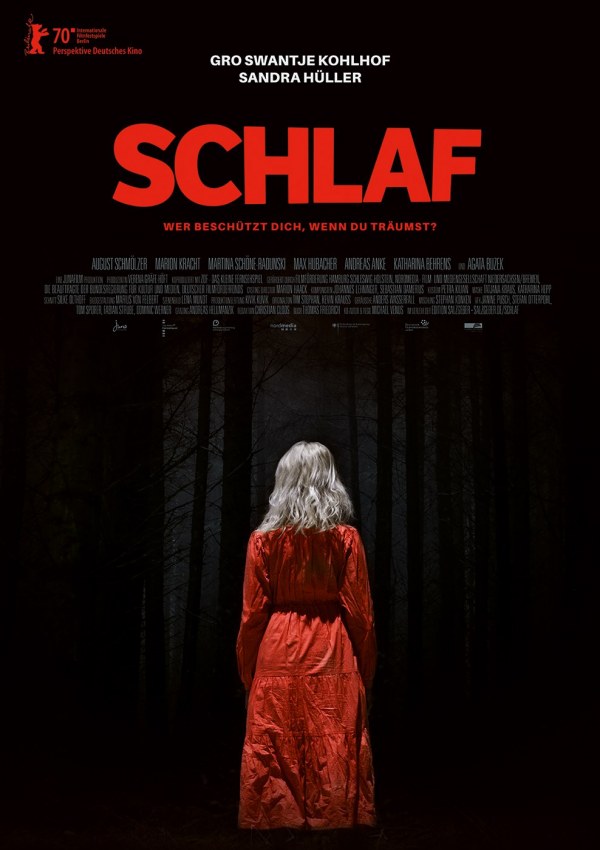
The small Harz village of Stainbach is haunted by mysterious demons. As it turns out, the nightmares of Marlene (Sandra Hüller) are responsible for it. In these nightmares, she drives the inhabitants of the low mountain village insane. When she finds out that her dreams are about a real place, she pays a visit to the village to get to the bottom of the mystery. She eventually suffers a nervous breakdown when she learns of the consequences of her nightmares and is committed to a psychiatric ward. Her daughter Mona (Gro Swantje Kohlhof) now also travels to Stainbach to find out the causes of the demonic nightmares. In the process, she comes into contact with the peculiar inhabitants of the village and learns of dark forces from the Nazi era that haunt her, first in her dreams and then in real life.

The forest literally appears to have come to life and Martin finds himself an unlikely hero, in this magical adventure and an upbeat tale with an environmental twist.

Katharina is clinic clown Fredda Meyer. At work in the children's hospital, her child Moritz, who was suffering from cancer, grew dear to her heart. Moritz will soon die. Fredda stays and is there for the parents, for the carers, cleaning staff and for Moritz. She makes fun when nobody can laugh anymore. She cries clown tears when everyone is frozen. Fredda breaks the taboos and conventions of how we deal with death.

Almost every day, actors and actresses experience a drama of whose extent we have no idea. We experience them in their roles when they play seducers, heroes, villains or failures. We know very little about the people behind the roles, unless we receive a distorted image from the tabloid media. Actors* live a profession that exposes them in a special way to the public. Their profession is both a curse and a blessing, exposing personal complexes, touching vanities and fomenting narcissism.
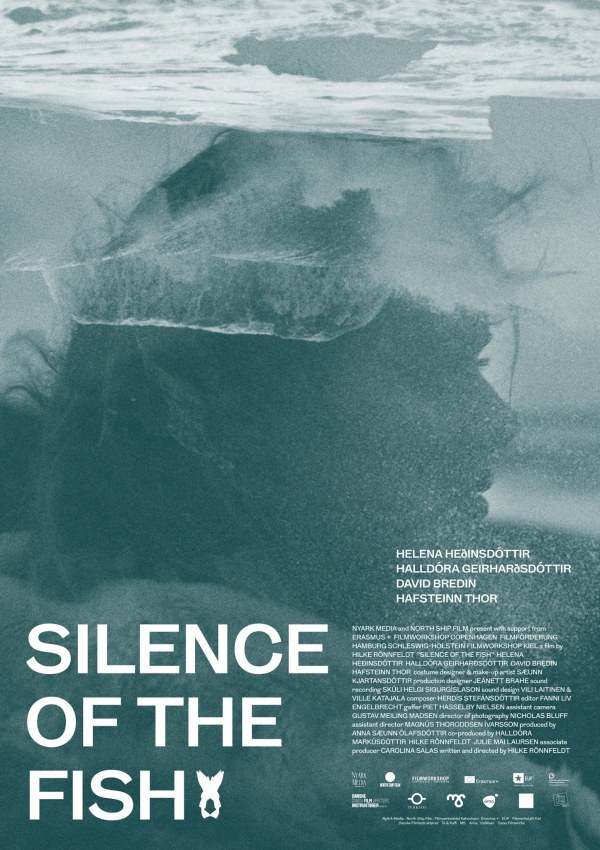
A remote fishing farm in the Icelandic Westfjords. Saga lives here with her mother Hildur. Hildur is trying hard to secure the economic existence of the small trout-farm of the family over the next winter, and her daughter Saga is her only support.
But Saga is growing up and develops needs of her own. When Saga’s only source of affectionate love finds death by the hands of her mother, she questions the kind of feelings that still bind her to her mother.
Hildur tries to hold on to the tightly knotted bond between her and Saga, but Saga is no longer willing to accept a life lingering for love, and she decides to put her mother to the test. The outcome will decide her future at the farm.
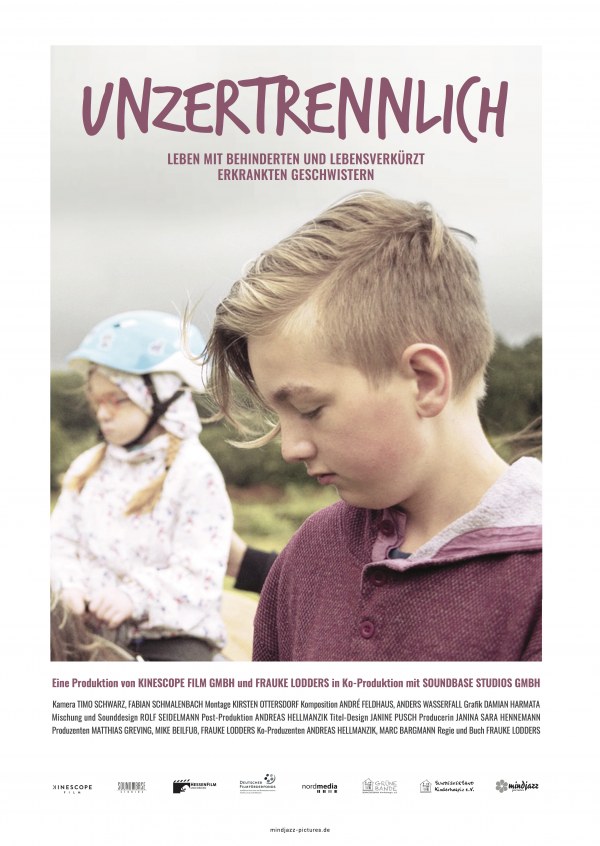
Approximately 4 million people in Germany have a brother or sister who is chronically or life-shortened ill or disabled. They have to deal with issues such as responsibility, abandonment and loss much earlier than their peers. Their reality is fundamentally different from that of other children and adolescents. Quietly observing and with great respect for all family members, the film approaches the different life realities of such siblings and introduces their everyday life.
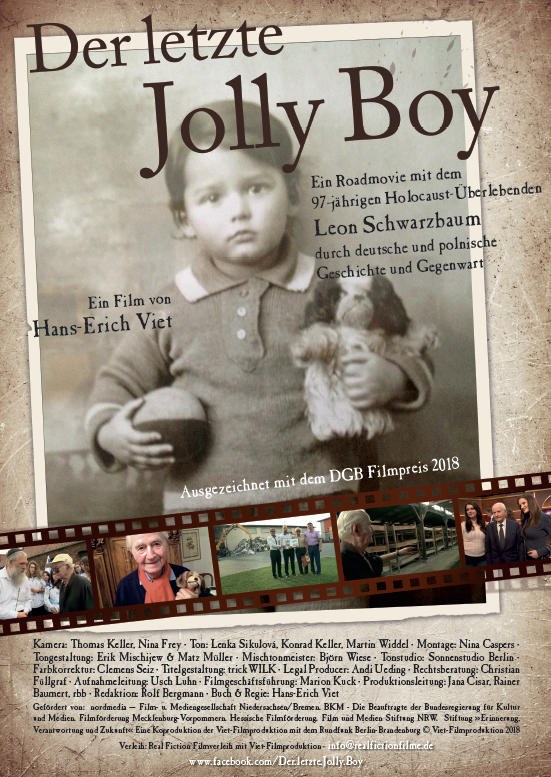
Documentary road movie by Hans-Erich Viet, who visits the stations of his past together with Holocaust survivor Leon Schwarzbaum. Leon Schwarzbaum had actually wanted to become a singer. Before the outbreak of World War II, the now 97-year-old played in the band "Jolly Boys." Today he is the only survivor of the group. Together with documentary filmmaker Hans-Erich Viet, Schwarzbaum travels through the German-Polish past and present - from his hometown of Katowice to the Bedzin ghetto, the Auschwitz and Buchenwald concentration camps, and the trial of SS guard Reinhold Hanning in 2016.
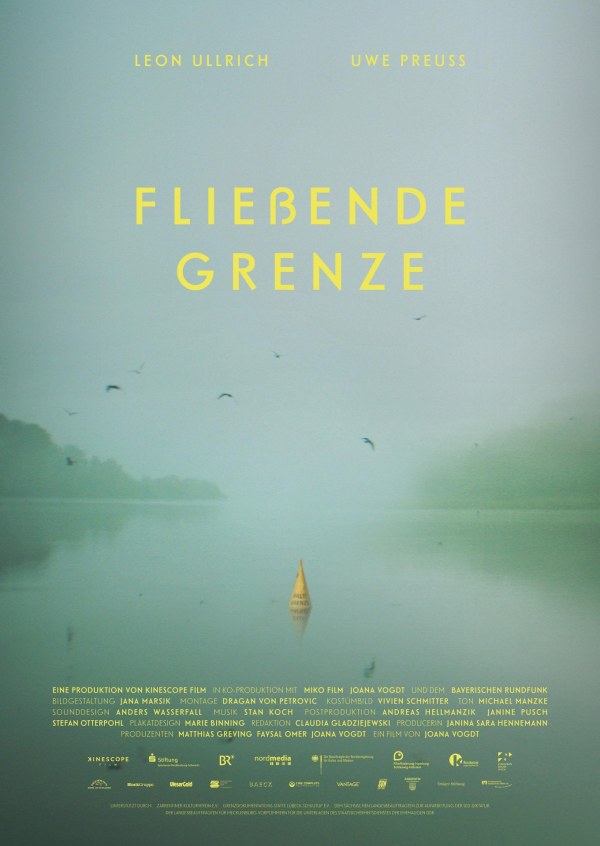
In the middle of the Schaalsee runs the bureaucratically precisely defined “ Fluid Border” between the FRG and GDR. One night a storm shifts a buoy of the border line. While the border and measuring troops from East and West meticulously try to restore order, two land surveyors throw their prejudices overboard and tear down the border between them for a short time.
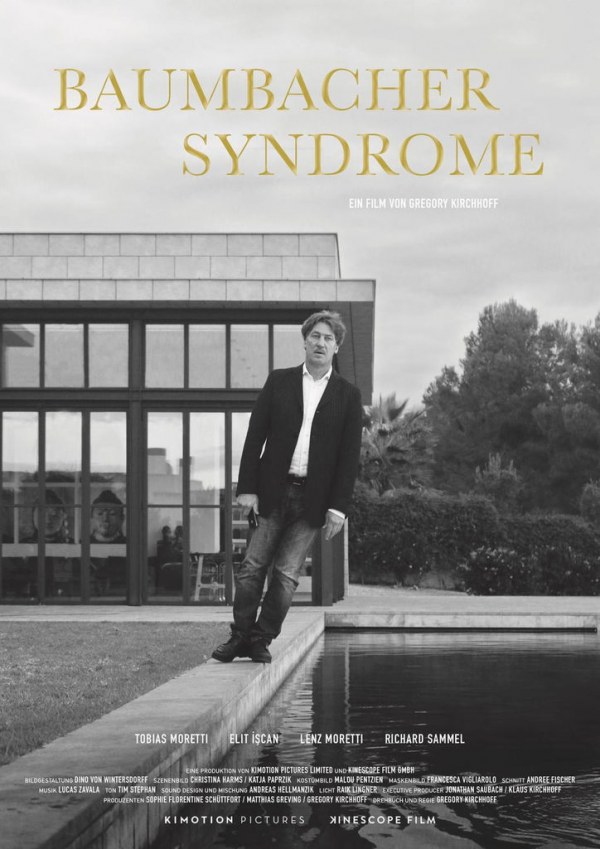
Late-night show presenter Max Baumbacher wakes up one morning with an unusually deep, almost magical voice. The news of this unprecedented change spread worldwide in a very short time and prompt the moderator to hide from the public in his manager’s Spanish villa. When Max meets the young, crazy Fida, and his depressed son from a previous relationship unexpectedly visits him, Max has to face his past.
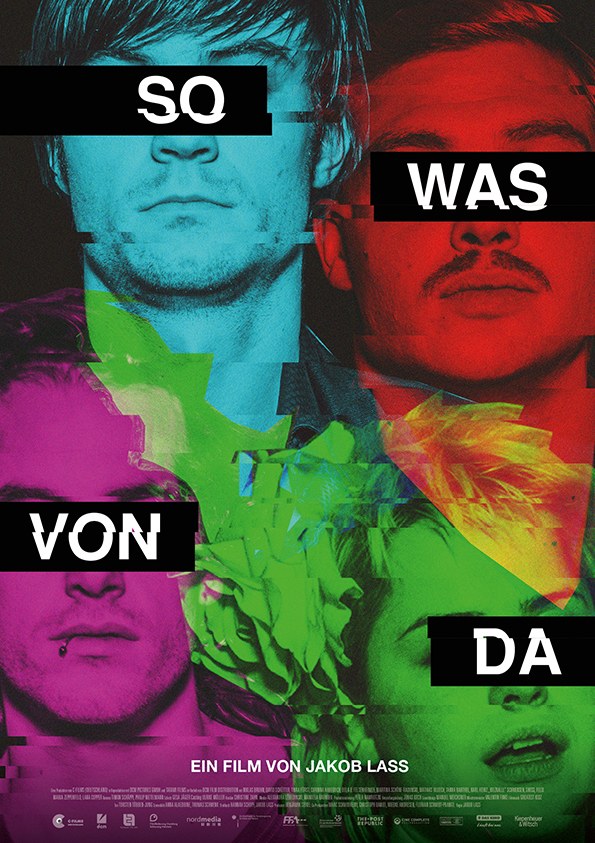
Hamburg, St. Pauli: When Oskar (23) wakes up on New Year’s Eve morning, his life is in ruins. The last party in his club is taking place that night. The house is torn down, the dream is over, Oskar has debts and no idea what is to become of him. In addition, Mathilda, the great love of his life, whom he just can’t forget, has announced herself, and then a desperate ex-pimp storms his apartment and wants money. Can’t it get any worse? It’s just getting started.
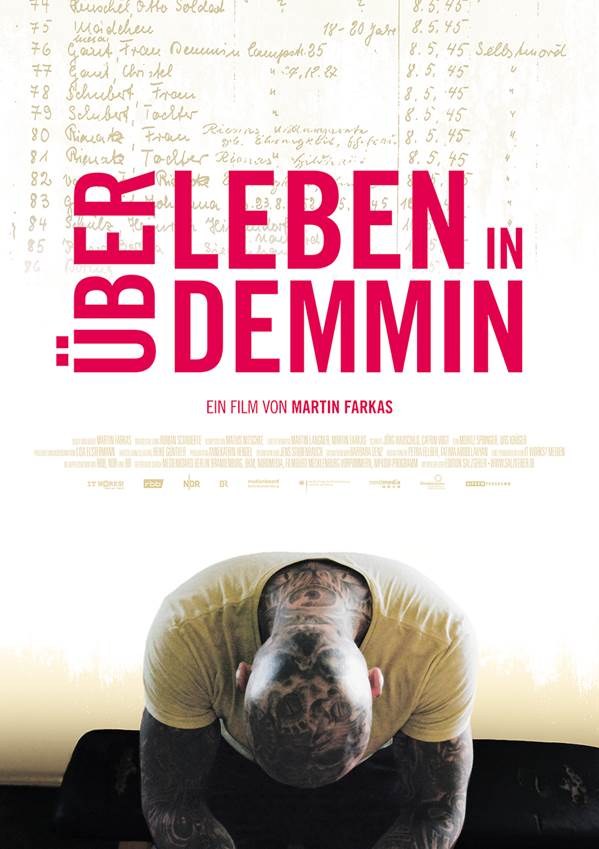
Germany, May 8 – Day of Liberation from fascism. Wrapped in a ghostly silence, a small town in northern Germany awakes. The people in Demmin are anxiously waiting while 700 police officers take position and neo-nazis get in formation. Demmin is not celebrating the anniversary of Germany’s liberation today ...
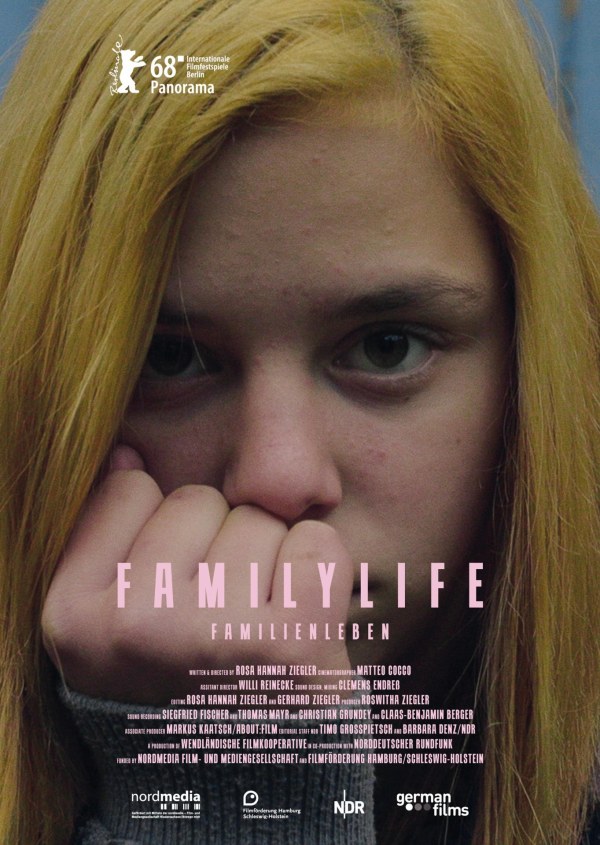
Biggi lives with her two daughters, four dogs and her ex-boyfriend Alfred on a run-down farm in a small village in Saxony-Anhalt. Biggi and Alfred have no work, they live very modestly. Their 14- and 17-year-old daughters Saskia and Denise are supposed to go to school, but there are always reasons for both of them to stay at home. Tensions arise with Alfred.
We accompany them in their conflict-ridden everyday lives, learn about their dreams, their fears and their hopes. And how difficult it is to break out of a circle. Family life with horses, dogs and cats, TV, PC and smartphone.
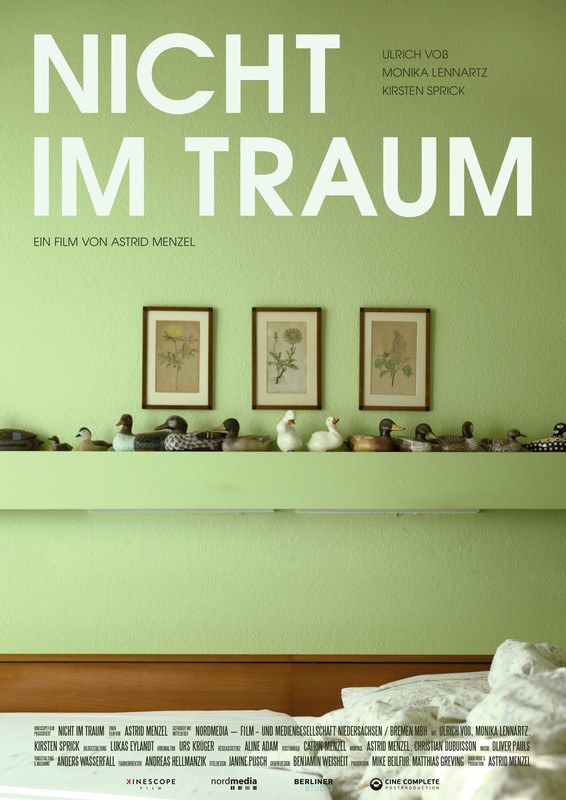
An elderly couple fights for dignity as they balance on the edge of their earlier lives. Both resist accepting their new life, now dominated by illness and nursing. A visit from their daughter could be the turning point.
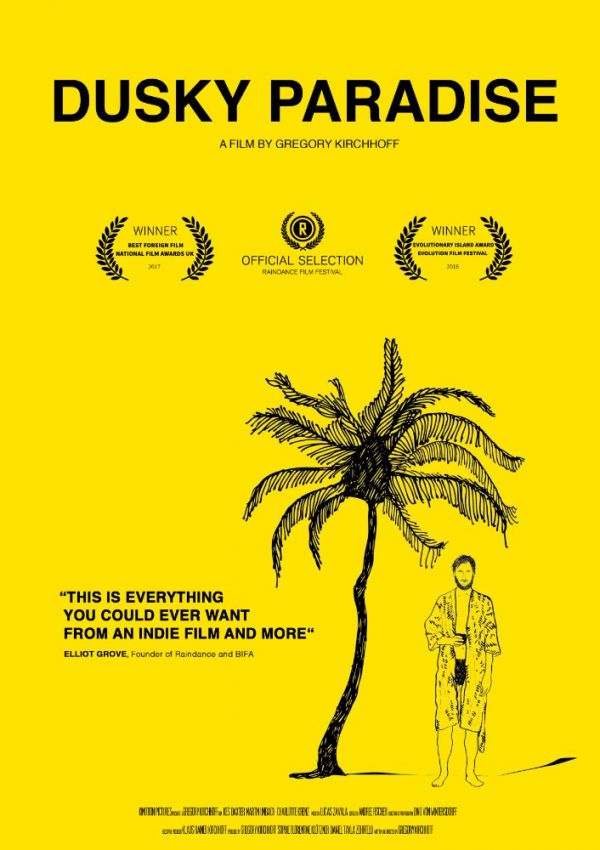
After the sudden death of his parents, Jacob, in his mid-20s, travels to a foreign, paradise-like land to take care of his inheritance – a dream house with a pool and a turtle. He does nothing, and social interaction doesn’t interest him. Undisturbed by the daily grind out there, Jacob spends his days on a lounger in the sun, a drink in his hand and turtle by his side. It’s not until he meets his pushy, elderly neighbor Matteo that his quiet, apathetic existence is slowly broken. Despite initial resistance, Matteo’s passion for life and love leaves an impression on Jacob, who for the first time becomes involved with a woman – the crazy, fun-loving art student Zoe, of all people. Unwittingly, Jacob slips into a world of people and emotions.
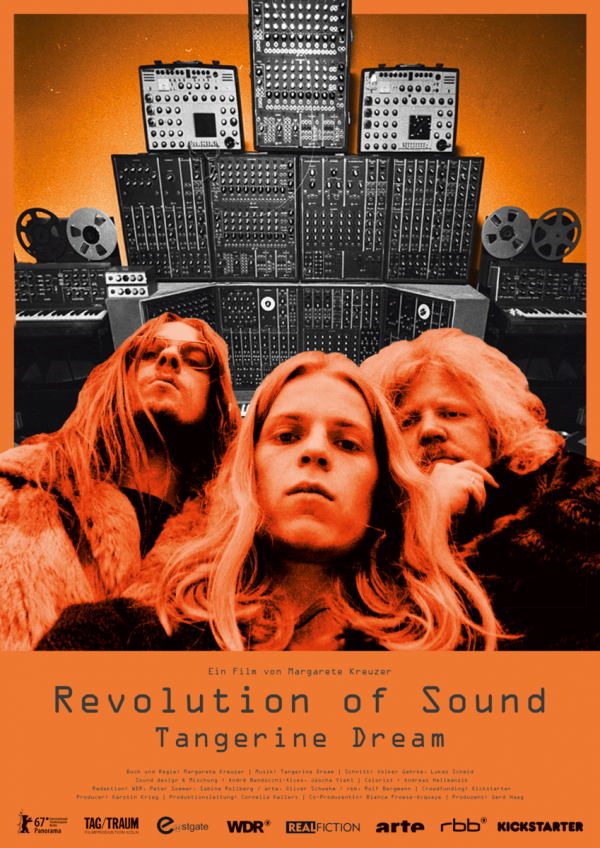
Edgar Froese, band leader of Tangerine Dream and pioneer of electronic music, is on a lifelong mission to find the ultimate sound. His constant quest takes him and his fellow band members to worldwide success, all the way to the Hollywood studios in Los Angeles. At his death in January 2015, Edgar Froese leaves a legacy of 48 years of music history. The film shows previously unreleased footage shot by the band leader himself: For the first time, we see the band backstage, on tour in Europe and the US, at photoshoots with Jim Rakete or on holiday at the seaside. Records and interviews with his wife Bianca Froese-Acquaye, with band members, close associates and fellow artists map the unique history of Tangerine Dream: a tribute to the musician Edgar Froese and the era of electronic music.

Set entirely in an 8m police truck, a number of detainees from different political and social backgrounds are brought together by fate, during the turmoil that followed the ousting of former president Morsi from power.
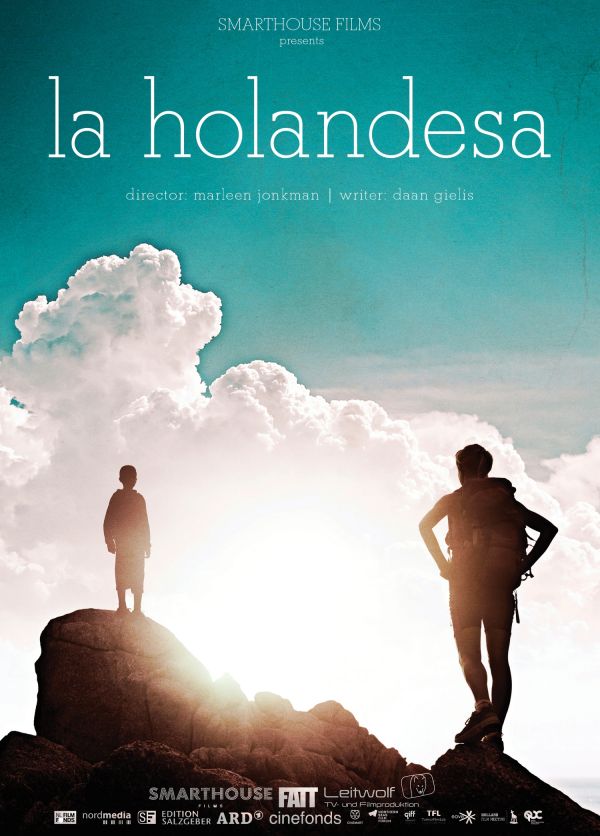
Maud and Frank are on holiday in Chile. Their relationship is fragile and so is Maud. After many years of trying, it is now time to face the fact that they will never have children. However, Maud is in denial. After a huge fight with Frank, she runs off and sets out on a road trip through Chile, that will see her travel to the depths of despair, before eventually making peace with herself.
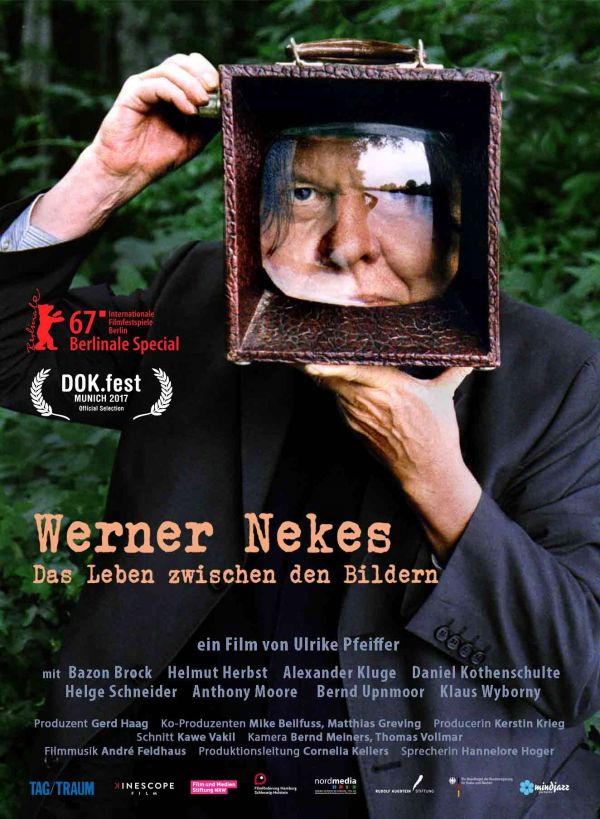
Werner Nekes is a leading contemporary experimental film maker. His work includes numerous avant-garde films that received many awards and distinctions. Closely related to his cinematographic work is his very substantial cinematographic collection, spanning about 40,000 objects ranging from the early days of cinema to phenomena of visual perception – a collection that is truly unique in the world. This film shows a cross-section of Nekes' films and reveals some particularly intriguing treasures from his collection. In conversations with Alexander Kluge, Nekes reveals his profound knowledge of cinematography and his lifelong and abiding interest in exploring the concept of perception. The film also looks at his close collaboration with Helge Schneider and Christoph Schlingensief.
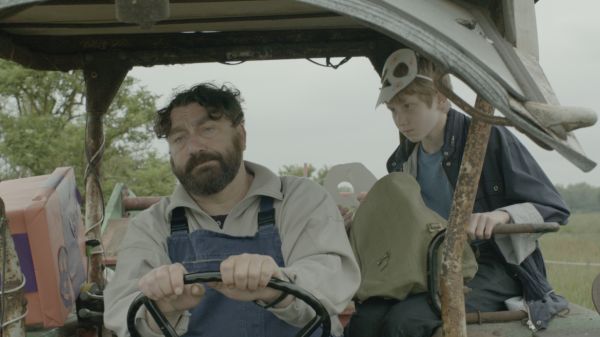
Little Willem plans a celebration for his deceased grandfather, like the Mexicans do on their famous Day of the Dead. And so a small East Frisian cemetery becomes the scene of a colorful hustle and bustle. After some back and forth, Willem is even able to persuade his taciturn neighbor, the farmer Hendrik, to join in and thus commemorate his deceased mother.

When ex-police student and current vigilante “Bad Sheriff” – who is an elusive phantom for the police – just wants to pick up his girl and leave town for good, he runs into his old teacher in a bar. A love letter to genre films of the early 80s. From a time when ambivalent heroes said little, but let their revolvers speak instead.
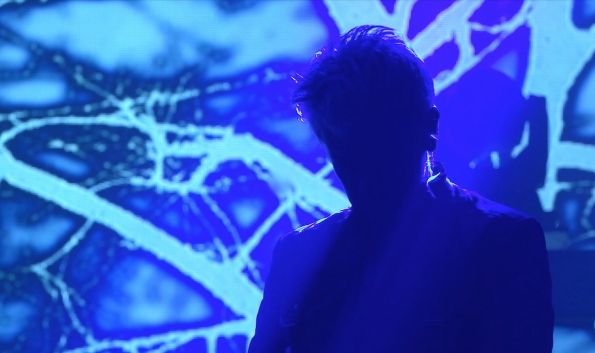
Anne Clark, an icon of music history and a terrific pioneer of spoken word art, has been on stage for more than 30 years. It transforms language into unique music. Since the early 1980s, New Wave classics such as OUR DARKNESS and SLEEPER IN METROPOLIS have provided a thrill of excitement that has inspired generations of musicians. Her analog synthesizer sounds made the gloomy poet a pioneer of techno. After drastic confrontations with her record company, she disappeared from the musical scene and re-invented herself in the quiet solitude of Norway. Director Claus Withopf accompanied Anne Clark for nearly a decade, portraying a socially critical as well as overwhelming exceptional artist – a musical rebel.
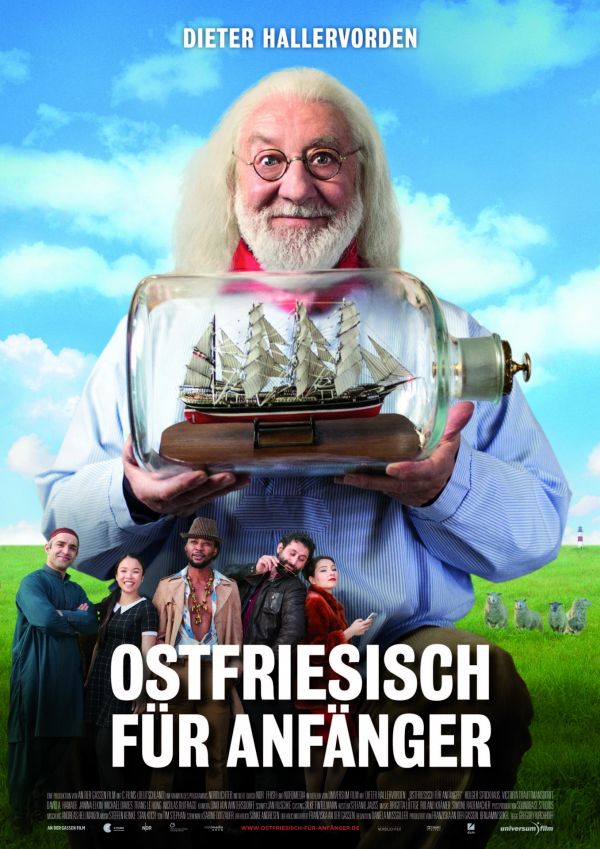
Uwe Hinrichs is a loner who consistently speaks the Low German language and describes himself as the last real East Frisian. He wants nothing to do with globalization and the modern world. When a group of foreign professionals suddenly moves into his impounded house, he goes crazy and literally messes things up. Against his will, he now has to take over the integration lessons for these "Utländer". Cultures, conflicts and expectations collide. But where there is friction, there is also warmth, and so Uwe overcomes himself and, with good intentions, teaches the strangers Low German instead of High German. But no one notices the mistake. When all seems lost, Uwe rises above himself, saves the future of the foreigners and thus his own ...
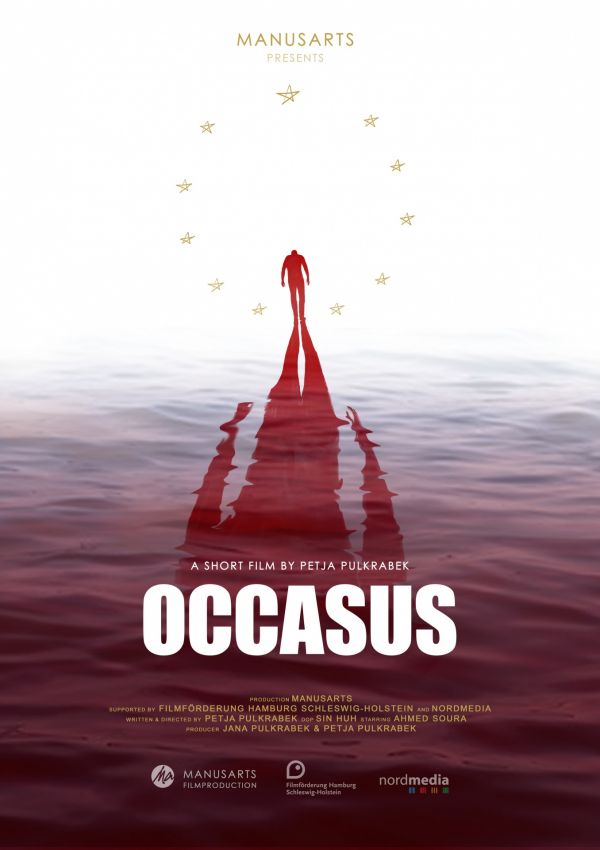
Isaac, an African refugee, is stranded on a western vacation island. But the supposed vacation paradise is his private hell. Driven by pain and rage, he moves across a country full of contrasts that reveal his cruel past and illustrate his tragic passage to Europe. The loss he suffered along the way drives him to bloody retribution.
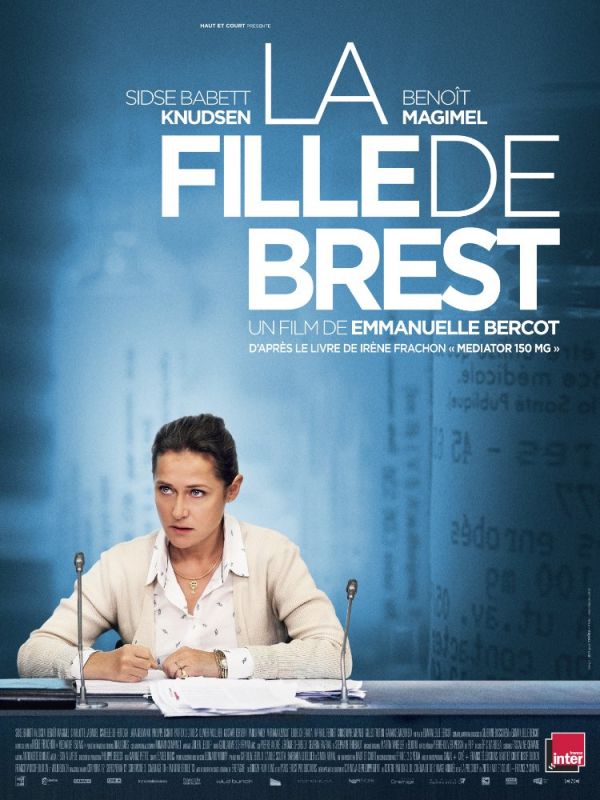
Dr. Irène Frachon from Brest discovers that Mediator pills cause heart valve problems/deaths. In 2009, she starts an uphill battle against the producer and the French health authorities.
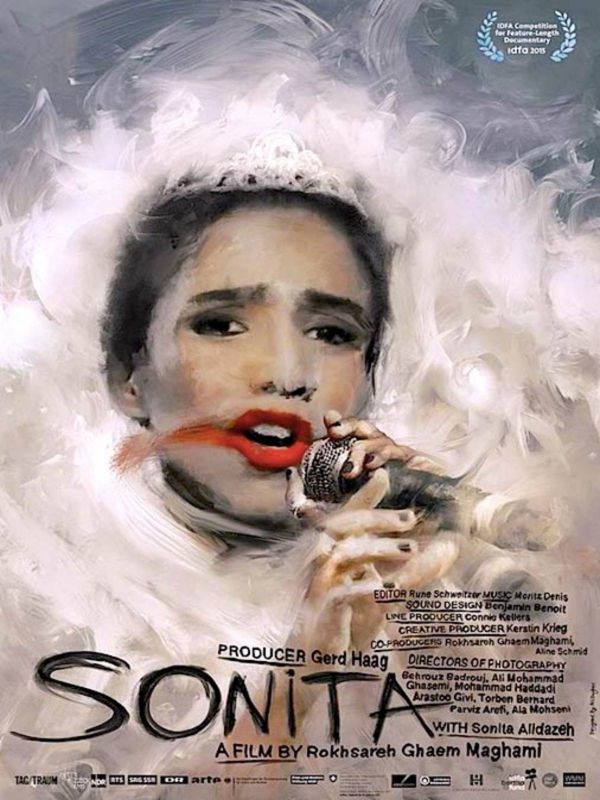
After her family attempts to sell her into marriage, a young Afghan refugee in Iran channels her frustrations and seizes her destiny through music. Grabbing the mic, she spits fiery rhymes in the face of oppressive tradition.

Forgotten and weathered, three studio halls lie today in the green somewhere – the remains of “Hollywood in the Heath” on the edge of Lower Saxony. After the Second World War, the small Bendestorf in the Nordheide was overflowing with people. From 1947, famous actors mingled with the many refugees and villagers. Bendestorf became a film stronghold and was mentioned in the same breath as the other major studios in Germany: Berlin, Munich, Cologne – and Bendestorf.
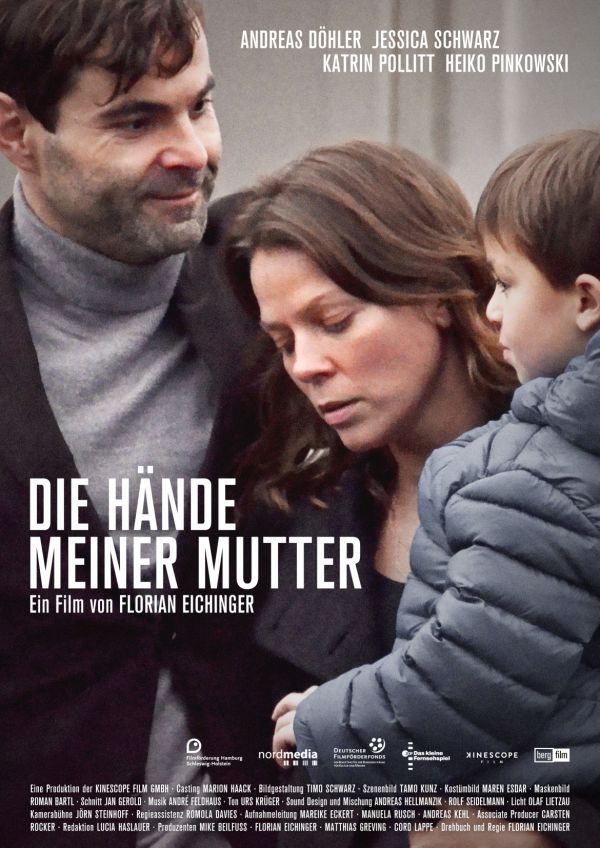
At a family gathering on a boat, engineer Markus vaguely remembers what his mother did to him when he was a child. Soon, Markus and his wife Monika have to face an unthinkable truth and violation, that a mother would seem incapable of.
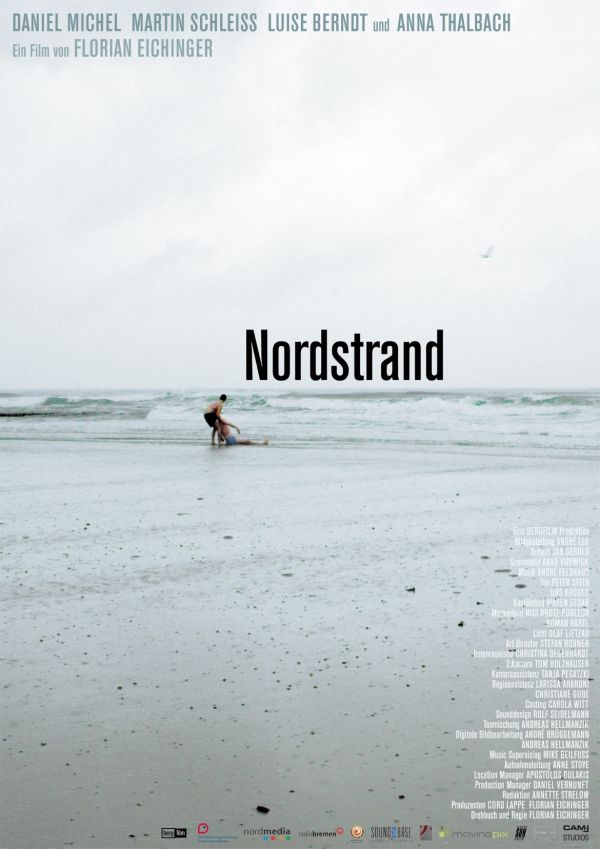
Marten (30) and his brother Volker (27) meet again for the first time in a long time at their parents’ abandoned house on the North Sea. Their mother is soon to be released from prison, where she has been since her father’s death, and Marten wants to persuade the younger brother to come and fetch her together. But Volker wants nothing to do with a new start in the family; he seems to have come only to sell the house. To this day, he reproaches his mother for not having been able to protect him as a child from his father’s abuses. And with Marten, who as an older brother feels complicit in the events of that time, Volker apparently plays a strange game.
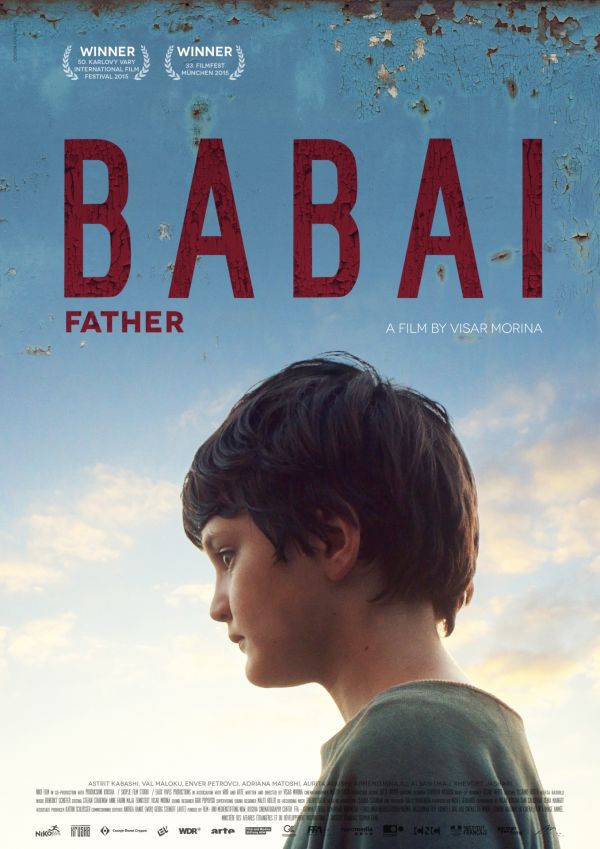
Nori and his father sell cigarettes in the pre-war Kosovo of the 90s. When his father secretly flees to Germany without him, his son decides to follow him on his own. After a life-threatening journey, Nori actually finds his father. With childlike consistency, he confronts him with his deed, which he cannot forgive him for all his love.
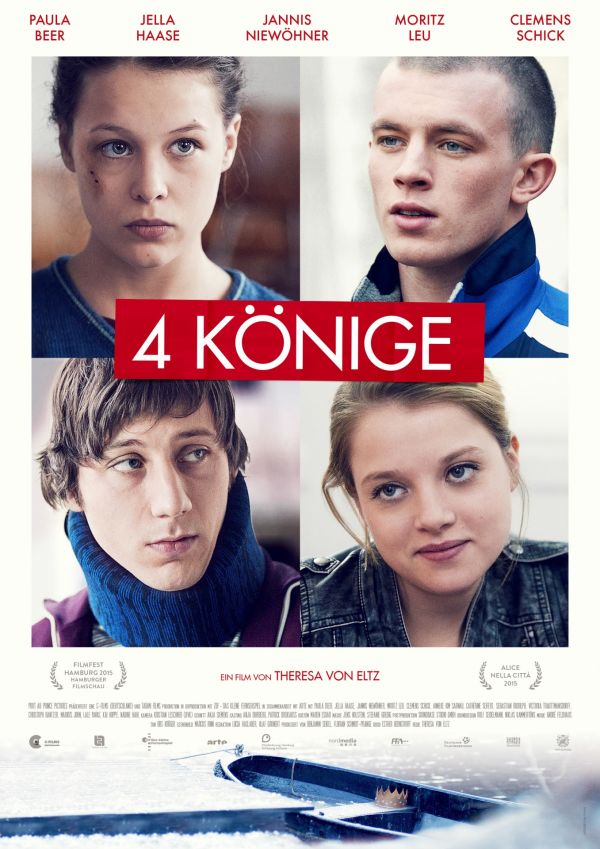
Christmas is approaching, and with it, the desire for harmony, beauty, light, and hope. Unable to cope with her parents’ conflict, 16-year-old Alex makes a radical decision; the next day she finds herself in the adolescent psychiatric emergency unit. There she meets three other young people: 17-year-old Lara, striking daughter of an academic family who’s having acid flashbacks; shy 16-year-old Fedja, who is being bullied at school; and violent 17-year-old Timo, who has just been moved from the closed ward. Under the care of 38-year-old psychiatrist Dr. Wolff, they will spend a Christmas together that none of them will ever forget.
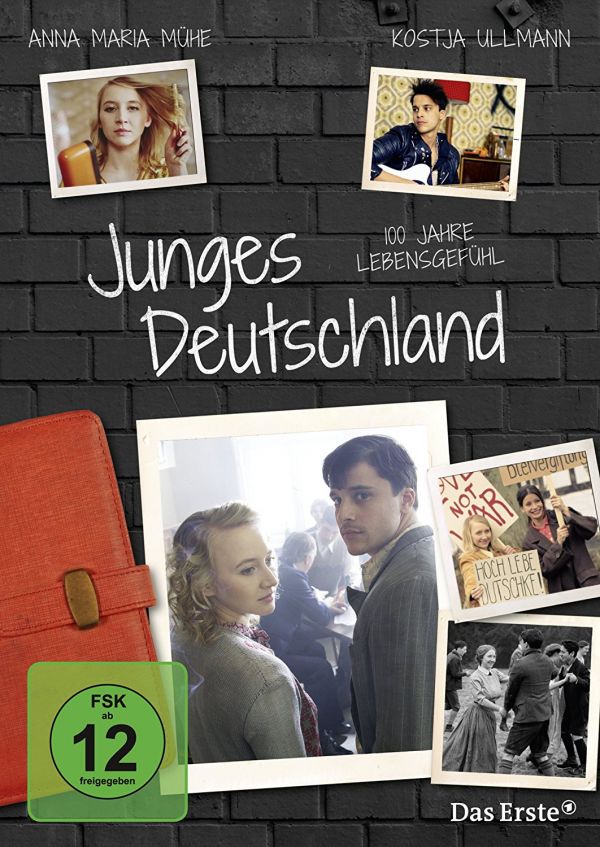
JUNGES DEUTSCHLAND documents Germany’s youth from the turn of the century to the fall of the Berlin Wall. The turbulent 20th century was also a time of youthful awakening: Wandervögel and Hitler Youth, half-stars and hippies, naked body culture and loyal breeding. What was it like to be young during the world wars, during economic crises and economic miracles, in times of student unrest and mass protests, while Germany was divided and when it grew together again? Anna Maria Mühe and Kostja Ullmann explore what young people before them thought, felt, knew – and wanted to know. They embark on a journey through time, researching diaries, letters and photo albums, and are transported back in time by means of elaborate productions.

Taweez tells the story of a lonely, old talisman writer who earns his money with prophecies and who has already given up hope of recognition in life, but is elevated to the status of messiah by the bubbling rumor mill in the village, only to be quickly exposed as a charlatan again.
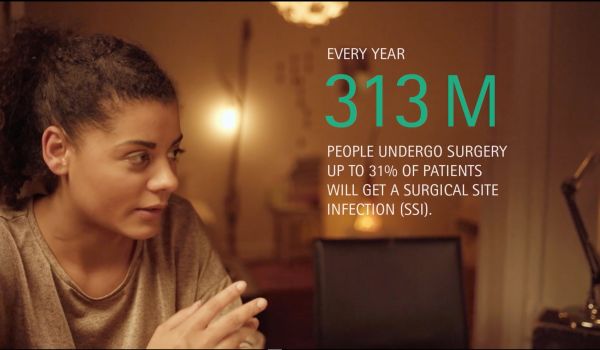
LIFE IN OUR HANDS – this is the title of this year’s campaign by B. Braun Melsungen to mark World Hand Hygiene Day 2017. B. Braun is one of the world’s leading manufacturers of medical technology and pharmaceutical products and services.
In our video, Theresa exemplifies one of the millions of patients who become infected with multi-resistant hospital germs every year: 31 percent of all patients undergoing surgery share her fate.
Three narrative levels of image, voice over and text charts paint a comprehensible overall picture of the problem in a sensitive and unobtrusive way. The point-of-view perspective of our protagonist also creates a particularly high level of identification for the viewer.
